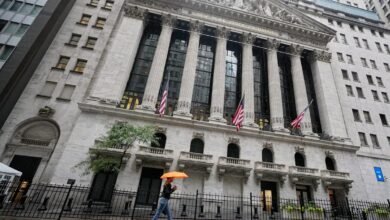Equity-powered Public-Sector Dynamic Capabilities for Greener Futures: Lessons from the City Cape Town | by UCL Institute for Innovation and Public Purpose | UCL IIPP Blog | Sep, 2025

Introduction
The City of Cape Town’s green bond exemplifies how municipalities can harness innovative climate finance to address urgent, emerging, and long-term challenges, while simultaneously strengthening key public sector dynamic capabilities, such as transforming resources and building coalitions. It offers a timely and compelling case for why investing in the dynamic capabilities of city governments is a strategic opportunity for global, regional, and national stakeholders. As critical sites of institutional experimentation and innovation, city governments can generate practical strategies, scalable models, and context-specific insights to advance transformative blended financing approaches that equitably tackle complex challenges at both local and global levels.
This illustrative case study highlights how the Cape Town city government is cultivating its public sector dynamic capabilities by leveraging city-led climate finance initiatives to enhance resource transformation and coalition-building efforts across its public sector, while also aligning these efforts with its broader equity and inclusion objectives. The case study then highlights key lessons for other city governments worldwide and describes its broader global significance for stakeholders exploring ways to scale transformative blended financing globally.
Public Sector Dynamic Capabilities
The Public Sector Dynamic Capabilities Index (PSCI) is a research project led by UCL’s Institute for Innovation and Public Purpose (IIPP) and funded by Bloomberg Philanthropies. It examines how city governments develop and apply dynamic capabilities — their ability to adapt, reconfigure, and transform within existing institutional structures in response to emerging challenges (Kattel et al., 2025). The PSCI’s five core dynamic capabilities: strategic awareness, adjusting priorities, building coalitions, learning and experimentation, and reconfiguring resources for delivery, are assessed, verified, scored, and compared to help city governments worldwide understand how they are doing across each dynamic capability relative to other cities and their own organisational objectives.
Building Coalitions:
Since 2014, the City of Cape Town has been an active member of the C40 Cities network and is a member of its Climate Leadership Group. Amid the city’s 2017 Day Zero water crisis, the City of Cape Town took a bold step by launching its first municipal green bond valued at ZAR 1 billion (approximately £42 million GBP as of June 2025).
The City of Cape Town’s green bond was only the second municipal green bond in South Africa, following Johannesburg’s creation of the first municipal green bond in 2014. The City of Cape Town’s green bond was sold to both domestic and international investors and became the first bond listed on the Johannesburg Stock Exchange’s Green Bond Segment. The city’s municipal green bond is a 10-year amortising bond, scheduled to mature in 2027, which has semi-annual equal capital repayments made to investors. The city’s municipal green bond was structured to repay both its principal and interest over its lifespan in a gradual manner. Ensuring transparency and accountability throughout the City of Cape Town’s green bond process was a key objective, thus, the South Africa-based Rand Merchant Bank served as the lead arranger, and the US-based KPMG acted as the independent auditor.
Crucially, it received accreditation from the UK-based Climate Bonds Initiative (CBI), an organisation that mobilises global capital for climate action and resiliency through its rigorous auditing, verification, and accreditation processes tied to climate financing instruments. The CBI’s accreditation processes require green bond issuers to adhere to high standards of governance, transparency, scientific verification, and alignment with environmental initiatives.
The City of Cape Town’s green bond also received accreditation from Moody’s, the US-based global integrated risk assessment firm and one of the world’s leading ‘Big Three’ credit rating agencies, achieving a GB1 (excellent) rating from Moody’s. Both certifications underscored the City’s commitment to global excellence in climate finance governance, making the green bond instrument more attractive to international investors.
Cultivating Strategic Awareness: Climate Financing for Short- and Long-Term strategic innovations in urban resiliency
The City of Cape Town’s green bond is more than a financial instrument; it is also a strategic tool. Designed to provide the city government with access to long-term, patient capital, this innovative financing mechanism helped the city government to align immediate public service delivery objectives with longer-term ESG and SDG goals, as well as the city’s global climate commitments, such as those under the C40 Cities network.
While the City of Cape Town operates on a five-year election cycle for its mayor and city council, the municipal green bond’s ten-year maturity (2017–2027) created a sustainable pool of earmarked public climate financing that is less vulnerable to election-cycle-related political shifts. Additionally, the municipal green bond enabled the City of Cape Town to reduce its reliance on provincial and central government funding, as well as large external donors, thereby strengthening the municipal autonomy and the City’s capacity to deliver critical infrastructure projects more aligned with it’s envisioned green transition strategy, equity-related public service delivery objectives, and democratic aspirations of its residents.
Finally, the bond has positioned the City of Cape Town to more effectively address both its current and future climate mitigation and adaptation needs, while also responding to slow-burn challenges such as the City’s expected population growth and housing needs driven by climate-related migration trends.
Public Sector Dynamic Capability (Transforming Resources): Building Climate Resiliency Through Infrastructural Equity
As a targeted response to Cape Town’s vulnerability to climate impacts, particularly its severe drought crisis and the high risk of recurrence, the municipal green bond was used to fund the rehabilitation and upgrading of critical water infrastructure, thereby strengthening the city’s drought resilience. Additionally, the investment supported the city’s equity-related objectives, which are linked to its water infrastructure and public service delivery. Funds from the green bond were also specifically directed toward materially addressing and beginning to rectify historical and ongoing infrastructural disparities rooted in Apartheid-era racial segregation policies. These policies led to decades of uneven maintenance and investment in water infrastructure, resulting in significant ongoing contemporary disparities in access to public services and heightened vulnerability to climate crises — disparities that continue to affect many Capetonians today, still largely along racial lines.
Additional green transition municipal projects financed by the green bond included the procurement of electric buses, water management initiatives, sewage effluent treatment, the rehabilitation and protection of coastal infrastructure, and energy-efficiency upgrades in public buildings. Notably, the green bond supported the City’s implementation of the ‘Cape Town’s Climate Change Action Plan’ (2021), which prioritises an equity-centred climate adaptation approach.
For instance, to advance its green, accessibility, and inclusion objectives to better meet its residents’ diverse mobility needs, the City of Cape Town’s sustainable mobility framework was designed to reduce emissions and improve access to affordable and sustainable public transport options. This project was particularly important, as it explicitly links the City’s green transformation efforts to its equity objectives, considering the City’s challenges related to spatial and economic inequality. As the Plan notes: ‘Spatial and economic inequity is highlighted by the fact that the 25% poorest commuters spend an average of 43% of their household income on transportation and suffer the longest travel times’ (City of Cape Town, 2021, p. 55). Thus, by expanding access to affordable green public transport, the City aims to reduce this burden.
The City of Cape Town’s 2021 Climate Change Action Plan also aligns the city’s short and long-term urban mobility and climate resilience objectives, designed to accommodate projected population growth and rising urbanisation challenges increasingly driven by climate-related migration and development pressures. It also explicitly articulates the City of Cape Town’s commitment to interlinking its green transformation and equity efforts, thereby underscoring its commitment to a climate-justice-centred approach throughout the plan. Both examples begin to highlight how the City of Cape Town actively set out to link its green transformation and equity efforts in its Action Plan framework through three key objectives:
- Addressing the legacies of apartheid,
- Rectifying existing imbalances between types of residential development and public services
- Mitigating the creation of new structural imbalances in its public services delivery and green transformation efforts.
The City of Cape Town’s green bond enabled the city to better carry out these efforts by allowing it to more effectively align these objectives across its implementation of major projects, thus transforming its resources in the service of equity.
Key Lessons
By aligning with international green bond standards and attracting long-term capital beyond political cycles, the City of Cape Town not only mobilised capital for urgent climate action but also created a resilient, future-focused funding mechanism for long-term projects in anticipation of future climate-related needs and its anticipated population growth trends. Additionally, the municipal green bond enabled the city government to more effectively pursue its envisioned climate action plan and green transformation efforts, aligning with its equity objectives, by providing the city government with greater access to flexible funding and fiscal autonomy.
As climate resiliency requires equity, this case highlights how the City of Cape Town was able to conjoin, advance, and align these objectives by cultivating its public sector dynamic capabilities — building coalition and global partnerships and transforming resources — through its creation of a municipal climate financing instrument. As inequality continues to rise and the effects of climate change intensify, this case study offers an important example of how cities can collaborate with other stakeholders to transform resources and build coalitions that can help them to better address these challenges together, both locally and globally.
Global Significance
The City of Cape Town presents a compelling case study on how the dynamic capabilities of city governments can support and accelerate efforts to globally scale transformative blended finance approaches. As uniquely positioned sites of innovation, city governments offer a key platform for rapidly prototyping and testing new financing strategies and institutional approaches in a practical manner, before they are adapted and scaled to national, regional, and international levels, requiring the expenditure of significantly more resources. The City of Cape Town, in particular, has emerged as a leader in advancing blended finance models that are not only focused on sustainability but also explicitly committed to promoting equity and social inclusion as well through public sector transformation.
On 12 June 2025, as part of South Africa’s G20 Presidency, Cape Town hosted the launch of the G20 Sustainable Finance Working Group (SFWG) programme. Co-hosted by the SFWG secretariat, the University of Cambridge Institute for Sustainability Leadership and the United Nations Development Programme, the two-day programme brought together senior public finance officials from 16 countries, along with representatives from the European Union and the African Union. The gathering focused on how to globally scale transformative finance to advance the G20’s 2025 overarching themes of solidarity, equality, and sustainability.
The City of Cape Town’s leadership demonstrates how cities can serve as critical drivers of public finance experimentation and models of institutional innovation that are not only more climate-resilient, sustainable, and forward-looking but also grounded in the principles of equity, justice, and inclusion, shaping greener and fairer futures worldwide.
Credit: Source link






